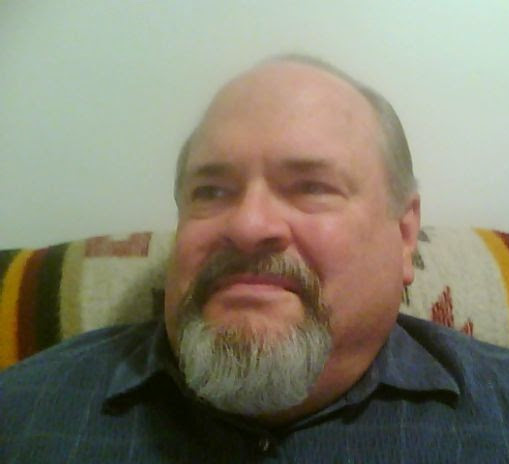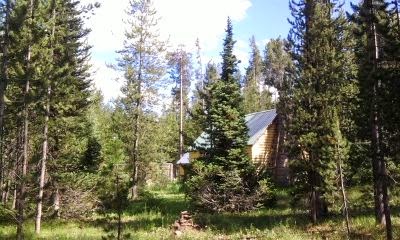 Welcome to our Introvert Interviews series, where I talk to introverts from all walks of life about their experiences and their introversion.
Welcome to our Introvert Interviews series, where I talk to introverts from all walks of life about their experiences and their introversion.
Meet Lyle Wiggins. Lyle is a newsletter subscriber who answered my call for interviewees. I’m always amazed at how responsive, open, and enthusiastic (not to mention interesting!) the introvertology community is, and Lyle is no exception. It was a pleasure learning about him.
Did you notice any links to personality and suggestibility when you were a certified hypnotherapist?
My original reaction was that there is a definite link to personality and suggestibility, but in reality, there are as many exceptions as rules when dealing with the human mind. Generally, the more left-brained and pragmatic a person is the more I had to work through chisel through their protective armor. If they chose to let me into their world, however, they could be very suggestible. The overriding principle in ethical hypnosis is that everyone has a choice whether or not they will allow themselves to comply. Some of the most important skills a therapist learns are how to guide clients into a state of comfort with the process.
You also owned a genealogical research company, what did you find interesting about family histories?
My interest in family history began when I was a child listening to my grandparents and parents telling stories about my Mormon pioneer ancestors. My grandparents on both sides were interested in genealogy for religious reasons, so it was a fairly common topic of discussion at family gatherings. From an early age I was a compulsive reader with an addiction to story as well. I had an obsession with biographies of explorers and adventurers that led to a desire to understand why people did what they did and the influence of history.
When I got married and settled down I wanted to know the old stories and more so I could tell them to my children. As I began to research in earnest I was also in awe at the hardships and sacrifices they made that have spilled over into my life. It also troubled me to see some negative intergenerational traits that I didn’t want to pass on to my children. When I began researching for other people I took delight in gleaning out stories and personal information rather than the usual names, dates, and places, also. I guess it comes down to an addiction to people and their stories.
What was your reaction when you first learned you were an introvert?
I remember clearly sitting at a table in kindergarten listening to my teacher ask questions and my classmates giving answers and realizing that I was different. I didn’t act the same as others. It was a bit frightening because I didn’t understand it or know what to do about it.
I think I was either in a psychology class in high school or in one of my reading projects that I first became aware of the word, “introvert,” and its definition. It made perfect sense to me that I was an introvert and that it explained, at least to a degree, why I was different and that I didn’t need to do anything about it. There have been times when I have wanted to be an extrovert, but I always get over it.
You’ve told me that 6th grade was an influential year for you. Why is that?
When I started the 6th grade I wanted to be in another class with my friends. I was bullied, hated school, and was removed from anyone I had a connection with. My teacher took an interest in me and started asking me questions. When I expressed interest in anything at all he helped me learn more about it. He taught me how to write for information (it’s amazing what people will send you if you ask) and how to do library research. He taught me about the cool reference indexes and union catalogs that opened up worlds of information to me. He even lent me books and didn’t fuss when I actually wore one of them out.
From that point on my real education took place after school and on weekends in public and college libraries. When I was given my first research assignment as a temporary part time genealogist I already knew where to go and what to do to find answers. My 6th grade teacher had prepared me for that part of my life’s work. He also helped me become a reservoir of random and eclectic information that tends to either fascinate or frustrate people I come into contact with.
What’s your favorite book?
Wow! How do I answer this one? It changes from day-to-day. I love the outdoors, especially mountains and wilderness. Right now I’m listening to Willard Wyman’s High Country, and it has me captivated. Other books that come to mind are, Markus Zusak’s, The Book Thief; A River Runs Through It, by McLean; C. Terry Warner’s, Bonds that Set You Free; James Galvin’s Resurrection Update; Alberto Rios’, Teodoro Luna’s Two Kisses; and they might all change tomorrow.
If you were able to travel back in time, is there any advice you would give to your younger introverted self?
Strangely, this is a tough question for me. My first reaction would be to reach back and tell myself those things that would help me avoid mistakes, pain, and depression. If I avoided those things, however, I would also miss out on the things that have brought me the most growth, and love in life. In reality, my younger introverted self was so incredibly stubborn and willful that he wouldn’t listen anyway. So, I guess I would say, “Don’t do stupid stuff, but if you do, I’ll love ya anyway. Good luck and I’ll see you at the other end.”
Thank you for the interview Lyle. And thank you, readers, for reading.



I found this very interesting. I am also introverted, but capable of acting extroverted. I’d rather not though. I’d rather hide in my room and write stories. Is it because I’m female that I can act like I’m extroverted? Are there many others like me? And are we mostly in the arts?
Hi Rita. Thanks for your comment.
It depends what you mean by “acting extroverted.” I think most people are capable of acting differently from what comes naturally to them. The psychology professor Brian Little has even coined the term Free Trait Agreement to describe how important personal projects can lead someone to act out of character.